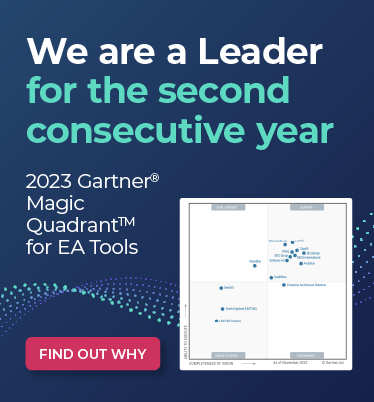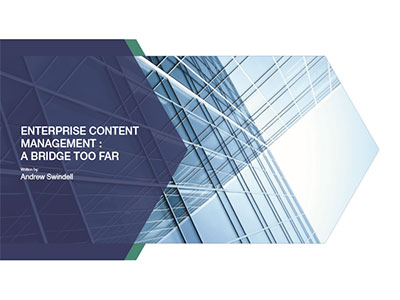External forces and internal drivers have reshaped the Enterprise Content Management (ECM) market in terms of what the industry calls it, what providers sell, and how Application leaders will buy products and services in the future. The context for this is that significant leaps in technology over the last 3-4 years have enabled a more holistic response to unstructured data needs i.e documents, records, videos, drawings etc... and business requirements are changing regularly to reflect these new technologies. In this white paper, Andrew Swindell explores the journey towards delivering your ECM capabilities and outline why it is important not too overstretch on meeting business requirements and manage your stakeholder expectations to enable a phased approach to delivering ECM outcomes
External forces and internal drivers have reshaped the Enterprise Content Management (ECM) market in terms of what the industry calls it, what providers sell, and how Application leaders will buy products and services in the future. The context for this is that significant leaps in technology over the last 3-4 years have enabled a more holistic response to unstructured data needs i.e documents, records, videos, drawings etc... and business requirements are changing regularly to reflect these new technologies.
Better software, faster and more integrated technology and better use of content have now meant an increase in focus and response to these data and information types is possible. Whilst the structured data world has a long history of vendor technology uplift, legislative and risk management demands are now also driving a need to track content, maintain privacy and meet user accessibility and collaboration requirements.
With shifting business requirements comes the technology challenge to respond in a different more agile approach that doesn’t require large scale platform projects but rather a more iterative approach to building business ECM capabilities.
In this white paper, Andrew Swindell explores the journey towards delivering your ECM capabilities and outline why it is important not too overstretch on meeting business requirements and manage your stakeholder expectations to enable a phased approach to delivering ECM outcomes



